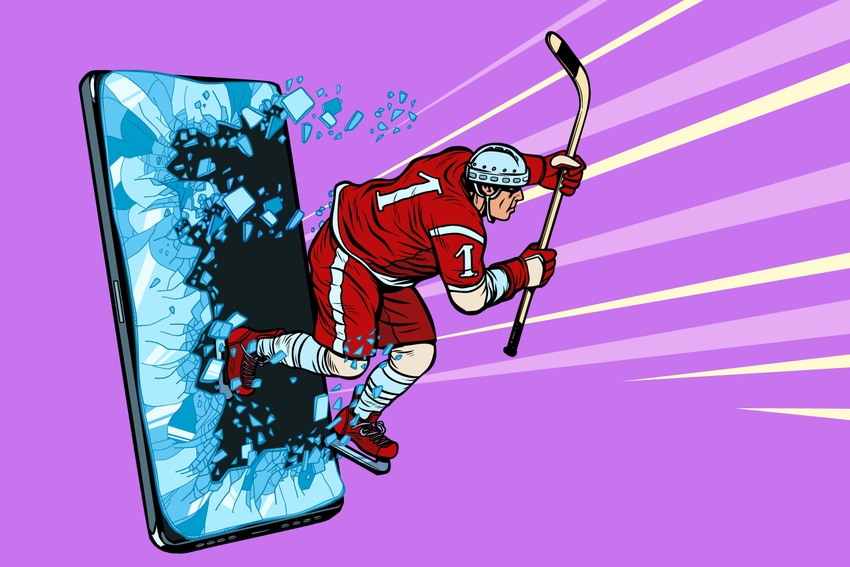
Verizon is deploying private 5G wireless networks in US National Hockey League (NHL) arenas as part of its role as Official Technology Partner for the NHL. Verizon is also the league's Official Wireless Services and Mobile Edge Computing Partner.
The service provider is delivering multiple customer experience and game day operations services to the NHL, Jonathan Nikols, SVP for Verizon Business, told Light Reading.
During games, NHL coaches will be able to access relevant game applications on tablets. These "video coaching" features are supported by Verizon's private 5G network, said Nikols. Verizon is also piloting a replay review feature for officials' iPads at the Prudential Center in Newark, NJ.
"There will be tablets provided to coaches behind the bench, and they're going to be able to have real-time coach-to-video connections because the private 5G will enable that speed of transformation of data," said Nikols. "They could have near real-time access to what they're filming, passing it down the bench with the tablet so the coach and player can talk about it."
Verizon's 5G Ultra Wideband network will also support cashierless checkout for NHL game attendees. Fans can pull up a mobile payment app such as Apple Pay on their phones to scan into the cashierless store. Computer vision tracks the items they select, and once they leave the store the items are charged to the customer's account. Verizon has supported cashierless checkout stores at NBA stadiums and football stadiums including Lincoln Financial Field, home of the Philadelphia Eagles, said Nikols.
Advantages over Wi-Fi
Since stadiums are "big concrete slabs," Wi-Fi isn't conducive to supporting use cases such as cashierless checkouts, Nikols said. But private 5G networks and mobile edge computing provide the density, throughput and security to support those types of applications, he added.
Future use cases could include accelerated access to games, which replaces traditional entry methods. Attendees can opt-in to facial recognition and won't have to download or print a ticket to enter the stadium, explained Nikols.
Verizon has deployed its 5G network to over 75 large public venues in the US, including Allegiant Stadium, which hosted Super Bowl LVIII in Las Vegas earlier this month. The service provider deployed 250 millimeter wave 5G radios in Allegiant Stadium, additional fiber, and MatSing large sphere antennas to provide connectivity to fans and the football teams.
About the Author(s)
You May Also Like












